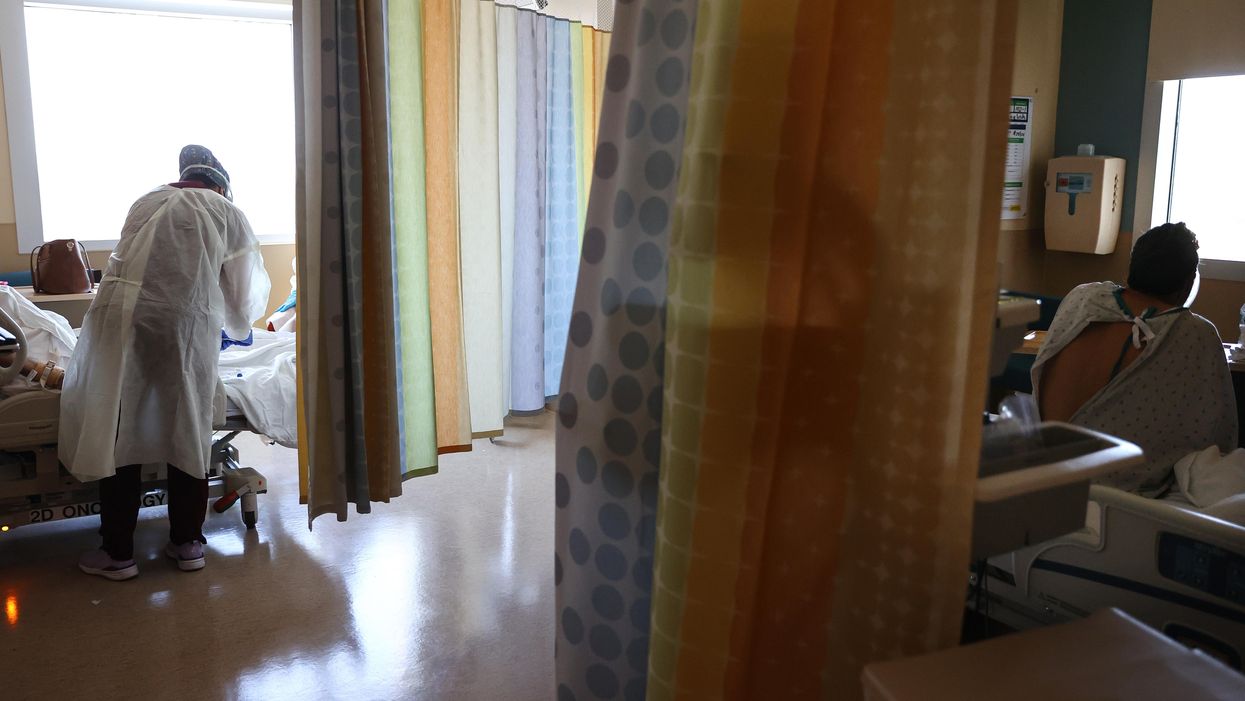Pearl is a clinical professor of plastic surgery at the Stanford University School of Medicine and is on the faculty of the Stanford Graduate School of Business. He is a former CEO of The Permanente Medical Group.
This is the first entry in a two-part op-ed series on institutional racism in American medicine.
The story of American medicine is one of incredible scientific advancements, from the use of penicillin to treat syphilis and other bacterial infections to the countless biomedical breakthroughs made possible by cell-line research.
Too often, however, these stories ignore an uncomfortable truth: Some of our nation's most significant medical discoveries were made possible through the mistreatment of Black patients — from the exploitation of African American farmers during the Tuskegee syphilis experiments to the tragic case of Henrietta Lacks, a Black patient whose cells were stolen by doctors and used for decades of cell-line research.
Racism is woven into our nation's medical past but is also part of our present, as evidenced by the Covid-19 crisis. From testing to treatment, Black and Latino patients have received a lower quality and quantity of care compared white Americans.
The biases of individual doctors and researchers aren't always the biggest barriers to equitable health care. Often, the problem is institutional.
Institutional (or systemic) racism is invisible yet omnipresent. It is woven into the fabric of American health care, embedded into the practices, policies and perceptions of the entire industry.
At some point during medical school, all future doctors are instructed to treat everyone equally, regardless of a person's race, ethnicity, gender, religion or sexual orientation. Studies have shown just how difficult this edict proves in practice.
Even when physicians have the best of intentions, their actions are beset by unconscious prejudices. Researchers have found that two out of three clinicians harbor what is called an "implicit bias" against African Americans and Latinos. These are biases that exist outside the doctor's awareness but are nonetheless harmful to minority patients.
In one example, epidemiological data demonstrate that Black individuals have experienced a two to three times higher likelihood of dying from Covid-19 than white patients.
Physicians attribute this discrepancy to the "social determinants of health," a phrase that encapsulates the many aspects of life that influence our health, including where we live, work, play and socialize. But before we accept this explanation and let health care professionals off the hook, consider what we learned early in the pandemic: According to national studies, white patients who came to the emergency room with symptoms likely to be Covid-19 were tested far more often than Black patients with identical symptoms.
A distressing example of institutional racism involves childbirth. Most Americans don't realize it, but the United States ranks last among all developed nations in maternal mortality (the measure of how often mothers die during or soon after childbirth).
Most of these deaths could be prevented, and yet the maternal mortality rate has been increasing in the United States since 2000. Two decades after The Journal of Perinatal Education first described the issue of racial disparities in maternal care as "alarming," Black women remain three times more likely to die from childbirth than white women.
Obstetricians know the most common causes of maternal death are (a) unrecognized bleeding and (b) uncontrolled high blood pressure. What they can't explain is exactly why a woman's skin color has such a significant influence on her risk of dying. Ask doctors what's going on and they'll list a number of contributing factors, ranging from the higher risk of hypertension in Black patients to greater life stresses to differences in diet and education.
But none of those factors help explain this: When the treating clinician is Black, the disparity in deaths between white and Black mothers all but vanishes.
The problem in understanding this discrepancy isn't a lack of data. Almost all U.S. hospitals have comprehensive inpatient electronic health records that provide a rich tapestry of details about the women giving birth and the care they receive. And as of 2017, all 50 states were required to add a standardized "maternal mortality checkbox" to their data reporting systems.
And yet we still don't know why the race of the doctor makes such a difference or how to close the gap when the physician is white. We also don't know if the race of the nurses providing the care matters. We also don't know whether the frequency of blood-pressure monitoring or care checks varies based on the patient's race, the staff member's race or both.
Most medical research focuses on the causations or correlations between two easily isolated data sets (like the race of doctors and the mortality of patients). Addressing systemic racism in medicine requires that we analyze far more data (all at once) than we do today.
In my next writing, I will explore how artificial intelligence might be the perfect application for this task but also how predictive health care algorithms used in AI can, themselves, have design flaws that result in unintended discriminatory biases.




















Trump & Hegseth gave Mark Kelly a huge 2028 gift